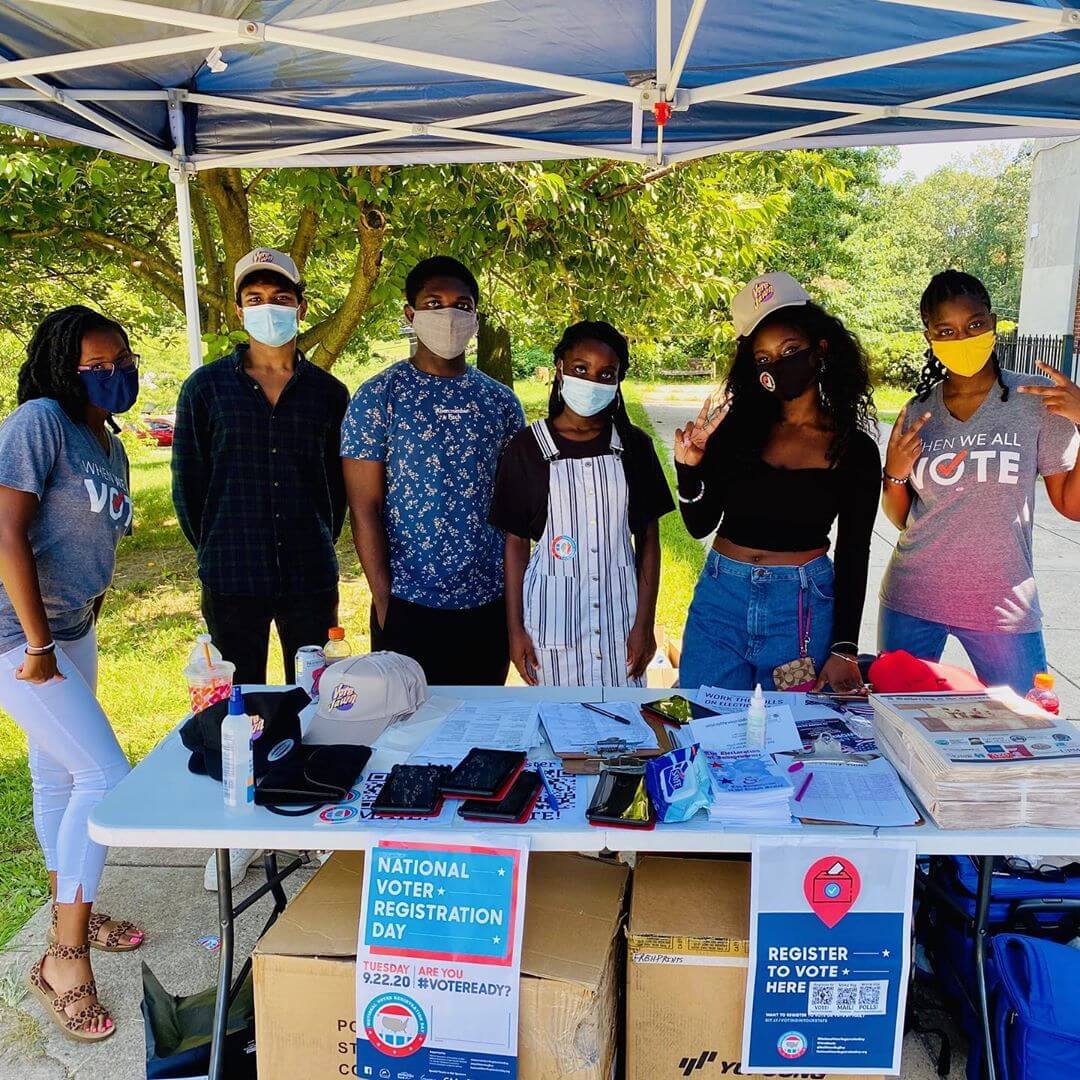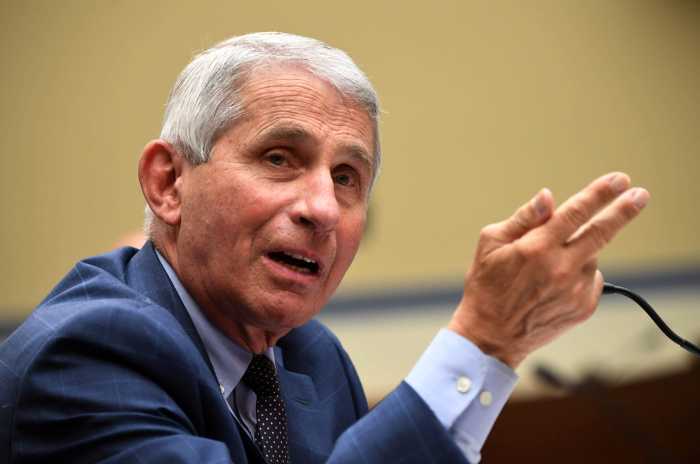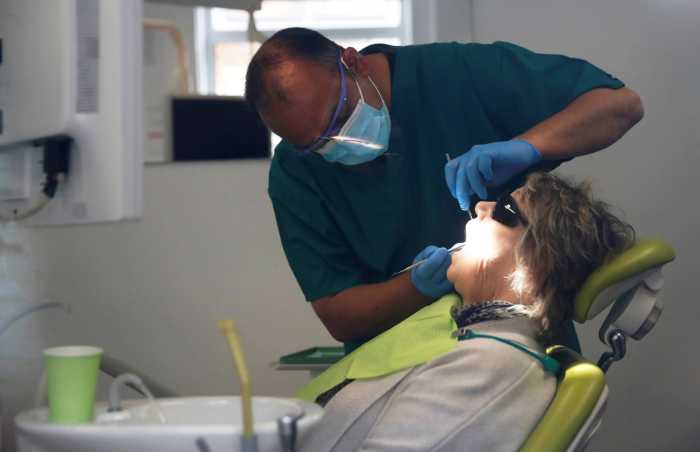At least one good thing has come out of the novel coronavirus pandemic, if you ask Angelique Hinton.
Since March, she has been working for Michelle Obama’s When We All Vote, a nonpartisan organization aimed at getting young people of color to register to vote.
Hinton’s goal is to sign up every eligible student in the Philadelphia public school system, and her initial plan was to set up a team at every high school. Then, when COVID-19 caused the district to shut down, communication lines went silent, and effort was put on pause.
She recruited a dedicated group of students, starting with five from Central High School, during quarantine, bringing in politicians, school board members and other speakers to talk on Zoom about the importance of voting.
At first, they tried to reach their peers through email and social media messages. The strategy wasn’t effective, perhaps in part because some households in Philadelphia don’t have access to the internet, Hinton said.
For the past several months, Hinton and her group of students have organized registration drives at grocery stores, libraries and other community sites.
“The coolest thing I think that really touched me is watching these students be able to have conversations with people and literally persuade people who didn’t think voting mattered to understand why it does and get them to register,” she said.
When Hinton’s group tries to get people to sign up to vote, they rarely talk about President Donald Trump or Democratic nominee Joe Biden.
“The main thing is just, in these communities, they just don’t feel like voting matters at every level,” she said, adding that they tell her that “nothing changes in our communities.”
The students work to figure out what issues the person does care about. Most of the time, it boils down to local matters, like criminal justice reform, Hinton said. Local elections help decide those things, the students tell prospective voters.
“It has just been incredible,” Hinton said. “They have just been true leaders.”
“I really don’t think that this would have happened had it not been for COVID and all the challenges that it presented,” Hinton added. “This is like something beautiful that came out of something very, very ugly and dark.”
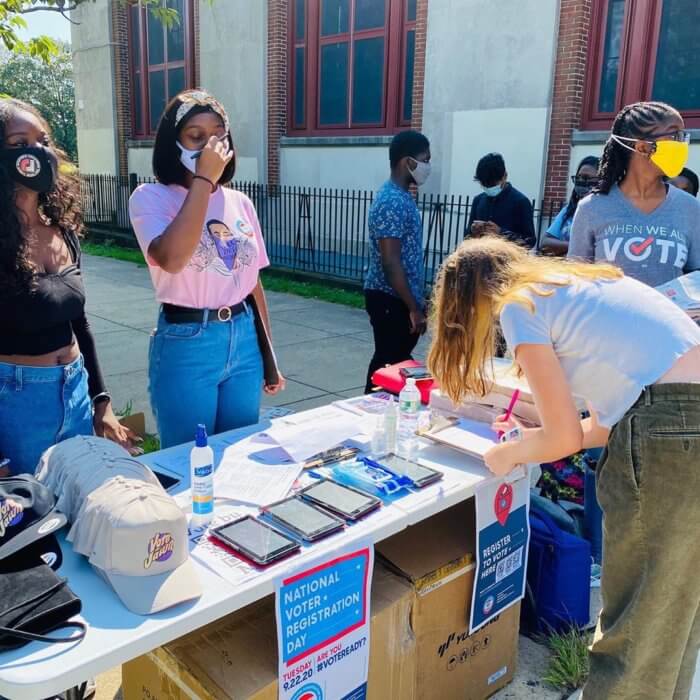
The pandemic has changed a lot about voting. Poll watchers believe Pennsylvania will again have a big role in who wins the White House, but questions continue to hover over the election.
City Commissioner Lisa Deeley, a Democrat who chairs the board in charge of elections, wrote a letter Monday to Republican leaders in Harrisburg, urging them to ditch the “secrecy envelope.”
The envelope comes with mail-in ballots, and voters are instructed to place the paper with their selections inside of it before sealing it inside another envelope for mailing.
Submissions without the secret envelope, known as “naked ballots,” should not be counted, the Pennsylvania Supreme Court ruled last week.
Deeley argued that the double envelope method causes confusion and estimated that 30,000 to 40,000 votes in Philadelphia could be thrown out because of it. She predicted the rule could disqualify more than 100,000 votes statewide.
Trump won Pennsylvania by about 44,000 votes in 2016.
Deeley wrote that the current arrangement sets the state up “to be the subject of significant post-election legal controversy, the likes of which we have not seen since Florida in 2000,” when the Supreme Court settled a recount dispute, leading to George W. Bush’s victory.
About 6% of absentee ballots in the 2019 general election were naked, Deeley said, and that was before a state law passed allowing no-excuse mail-in voting. The city has typically counted naked ballots, she wrote.
Many more voters are expected to utilize mail-in ballots this time around, she noted.
The City Commissioners did not tabulate the number of naked ballots from June’s primary election, according to Deeley’s letter.
In addition to the secrecy envelope decision, the state Supreme Court ruled last week that mail-in ballots received by election officials as late as 5 p.m. Friday, Nov. 6, will be counted, as long as they are postmarked on Election Day, Nov. 3.
If the postmark is missing or illegible, the vote should be accepted, unless there is evidence it was mailed after Election Day.
The court, in its majority opinion, also said that counties should be allowed to collect mail-in ballots at drop boxes and other locations.
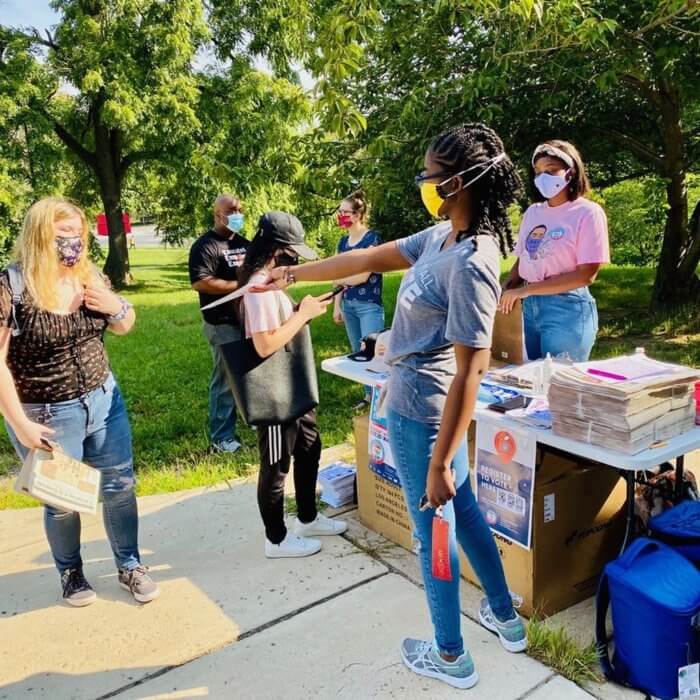
Deeley has proposed using part of a $10 million grant to open 15 satellite election offices where voters can register, request a mail-in ballot, receive their ballot and return it in one visit.
Residents will also be able to visit the office to drop off their submissions, instead of using the beleaguered U.S. Postal Service.
The plan is expected to be approved at the City Commissioners meeting Wednesday morning. If given the green light, the offices would open seven days a week starting on Sept. 29.
The deadline to register to vote is Oct. 19, and residents wishing to vote by mail must request their ballot before 5 p.m. Oct. 27.
Voters in Philadelphia will be deciding on six offices and four ballot questions.
People can apply for a mail-in ballot at www.philadelphiavotes.com or www.pavoterservices.pa.gov. Both sites also include information about registering to vote.
Voters should follow the instructions on their mail-in ballots. Once it’s completed, at least for now, voters should sign the declaration, stick it in both envelopes and send it in the mail.



